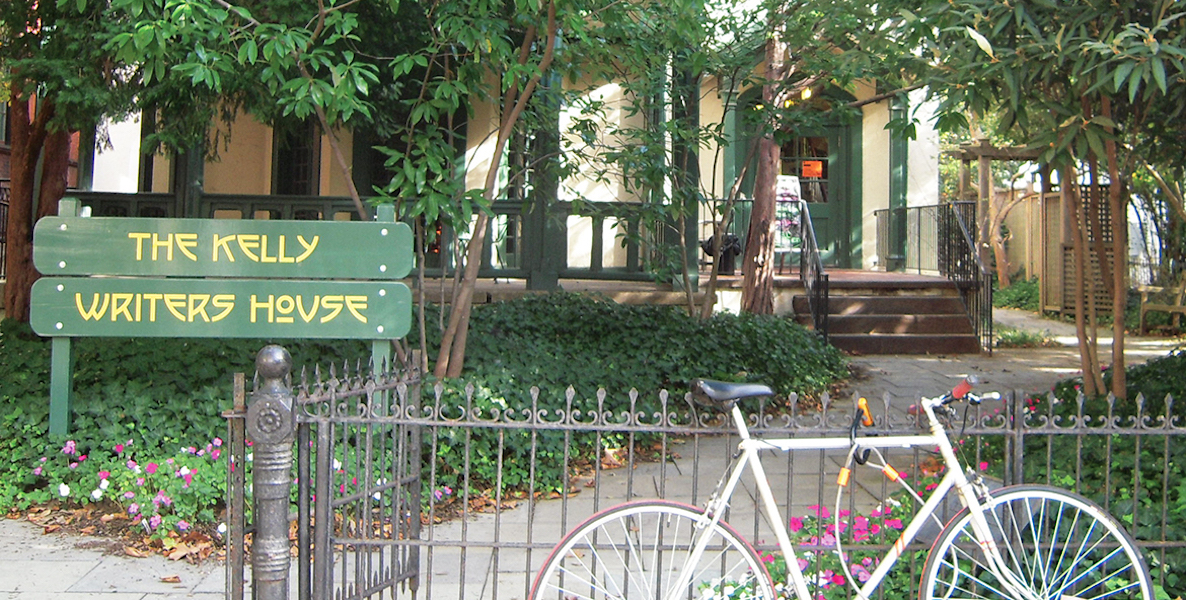Three years ago, I began teaching a seminar in advanced non-fiction writing at Penn. I did not know what to expect. My students did not know what to expect. I had no template for what I was doing. Teaching writing is particularly curious since so much of it is instinctive. I never took a writing course in my life for fear my delicate house of cards would go Kevin Spacey. I only teach in the Fall, and I only teach this one class so I can continue my professional career in non-fiction.

My students are so much more advanced than I was at their age that let’s just cut it right there. They listen—my most recent class in particular once I banned laptops in class. There is a time and place for J.Crew I suppose, but not when I am pouring my heart out over Capote and Hersey and McPhee and Updike.
This most recent class was my best yet. They worked, and worked hard. We did five so-called “workshop” assignments in which they mercilessly critiqued each other with mercy. The denouement was a non-fiction piece of roughly 5,000 words on a subject of their choosing.
The pieces were damn good. Several were professional grade, better than anything frankly I have recently read in philly.com or phillymag.com, better written, better reported, more nuanced, devoid of autopilot journalese. I do not say this to be critical but in the remote hope that some reporters and editors there pay attention to what these students can do.
Buzz Bissinger Talks About His Career in the National Writers SeriesVideo
I have talked at length with writing majors at Penn and they all lament the difficulty of being published anywhere given the disintegration of the newspaper business and the cyclical self-defeating conviction that readers won’t read anything that takes longer than three seconds. That is not the problem. The problem is that readers will read great storytelling and not crappy storytelling, and the more crap you shit the crappier the product gets. Nobody has to be Einstein to figure that out.
Students do not have the incubator that I had in the mid-70s where every newspaper in the country wanted to spawn the next Woodward and Bernstein and encouraged long-form reporting and writing. They do not have a conduit to get clips that can advance them up the ladder.
If we are ever to entice the next great generation of non-fiction writers, we must find ways to disseminate their voices.
When they asked me for advice, I shrugged my shoulders and was quite discouraging. It bothered me, until I contacted Citizen editor Larry Platt and suggested the idea of a partnership between the Kelly Writers House at Penn and The Philadelphia Citizen to publish exemplary student work in non-fiction narrative. This is not some largesse on the part of The Citizen. The pieces you will read from these students were subjected to rigorous professional standards. They deserve to be published because the public deserves to read them.
About The Kelly Writers HouseRead More
The first, by junior Sharon Christner, is about two homeless people during the holidays in which she spent night with them in the SEPTA City Hall station (and developed a terrible case of strep in the process of sleeping underground in frigid temperatures). The piece is exquisite, a searing reminder of what it is really like to be constantly out in the cold in Philadelphia. The second, by senior Chloe Shakin, is about the fire that destroyed the neighborhood institution of Bridget Foy’s on South Street. Like Christner, Shakin took true reporting initiative, interviewing several of the firemen who worked the blaze, turning the piece from cliché into a riveting read.
If we are ever to entice the next great generation of non-fiction writers, we must find ways to disseminate their voices. That has become one of my goals in teaching at Penn. The partnership between Kelly House and the Citizen is unique and exciting, and it is the hope that many more pieces will be published from all the non-fiction writing courses at Penn. I am proud of my students, and I am tired of telling them that maybe they should think about something else.
Buzz Bissinger is the author of Friday Night Lights and A Prayer for the City. He is also a contributing editor at Vanity Fair. He has been teaching the advanced narrative non-fiction seminar at Penn since 2015.
Photo via UPenn



